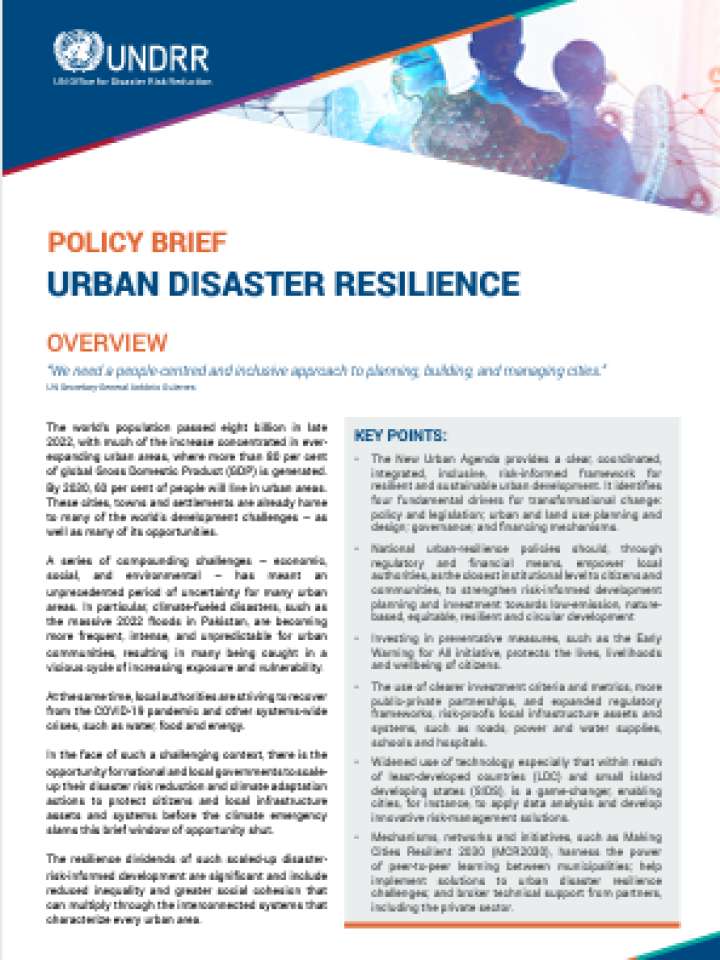Policy brief: Urban disaster resilience
This policy brief explores challenges faced in urban disaster resilience. The world’s population passed eight billion in late 2022, with much of the increase concentrated in ever-expanding urban areas, where more than 80 per cent of global Gross Domestic Product (GDP) is generated.
Some of the key points of the policy brief include:
- The New Urban Agenda provides a clear, coordinated, integrated, inclusive, risk-informed framework for resilient and sustainable urban development. It identifies four fundamental drivers for transformational change: policy and legislation; urban and land use planning and design; governance; and financing mechanisms.
- National urban-resilience policies should, through regulatory and financial means, empower local authorities, as the closest institutional level to citizens and communities, to strengthen risk-informed development planning and investment towards low-emission, nature-based, equitable, resilient and circular development.
- Investing in preventative measures, such as the Early Warning for All initiative, protects the lives, livelihoods and wellbeing of citizens.
- The use of clearer investment criteria and metrics, more public-private partnerships, and expanded regulatory frameworks, risk-proofs local infrastructure assets and systems, such as roads, power and water supplies, schools and hospitals.
- Widened use of technology, especially that within reach of least-developed countries (LDC) and small island developing states (SIDS), is a game-changer, enabling cities, for instance, to apply data analysis and develop innovative risk-management solutions.
- Mechanisms, networks and initiatives, such as Making Cities Resilient 2030 (MCR2030), harness the power of peer-to-peer learning between municipalities; help implement solutions to urban disaster resilience challenges; and broker technical support from partners, including the private sector.
Explore further
Themes
Urban risk and planning
